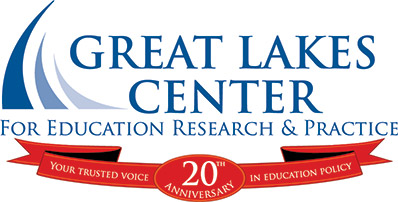
 |
December 8, 2020 |
|
Contact: Helpful Report on Middle School CTE Programs Comes Up Short on Confronting InequitiesAn NEPC Review funded by the Great Lakes Center Key Takeaway: While the report makes broadly appealing recommendations, it misses the opportunity to directly confront stratified opportunities within middle school career and technical education programs. EAST LANSING, MI (December 8, 2020) - Creating Strong Building Blocks for Every Student: How Middle Schools Can Lay the Foundation for Rigorous High School Pathways, a recent report from the Center of American Progress, offers a set of recommendations for middle school career and technical education (CTE) programs. The included recommendations are sound, although the report fails to provide much-needed evidence that connects the implementation of middle school CTE to increased access to high-quality pathways. Marisa Saunders, from the UCLA Center for Community Schooling, and Cynthia Estrada, from the UCLA Graduate School of Education & Information Studies, reviewed the new report and determined that its recommendations are helpful but come up short in confronting patterns of stratification, whereby marginalized students are being denied access to high-quality pathways that integrate an academic and CTE curriculum. The report does document inequitable access to these high-quality pathways. In particular, it explains how many students, particularly those from low-income backgrounds and minoritized populations, have not been provided the academic preparation needed to access pathways that prepare students for postsecondary education and career. In the face of these trends, the report contends that well-designed middle school CTE programs that support college and career exploration and guidance can prepare students for high-quality pathways and address current patterns of differential access. Yet while the report offers appealing recommendations for states and districts as they move to implement middle school CTE, Saunders and Estrada explain in their review that the suggestions do not directly address the key challenge. The report's landscape analysis identifies college and career exploration standards that emphasize career development. Middle school CTE programs following the report's suggestions may therefore fail to prepare middle school students with the academics or knowledge they need to access high-quality pathways. In fact, beyond improved academic preparation, middle school CTE programs must provide the necessary student supports and resources that can ensure all students succeed in these programs. Accordingly, the reviewers conclude, the report is helpful but incomplete and could lead states, districts, and schools to implementation strategies and practices that fall into familiar routines that maintain the harmful status quo for students from marginalized backgrounds. Find the review, by Marisa Saunders and Cynthia Estrada, at: Find Creating Strong Building Blocks for Every Student: How Middle Schools Can Lay the Foundation for Rigorous High School Pathways, written by Meg Benner and Scott Sargrad and published by the Center for American Progress, at: NEPC Reviews (http://thinktankreview.org) provide the public, policymakers, and the press with timely, academically sound reviews of selected publications. NEPC Reviews are made possible in part by support provided by the Great Lakes Center for Education Research and Practice: https://www.greatlakescenter.org The National Education Policy Center (NEPC), a university research center housed at the University of Colorado Boulder School of Education, produces and disseminates high-quality, peer-reviewed research to inform education policy discussions. Visit us at: http://nepc.colorado.edu/ About The Great Lakes Center - ### - |
|